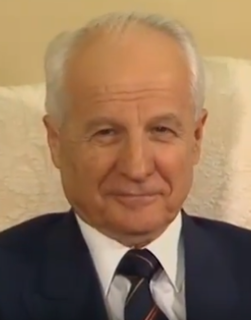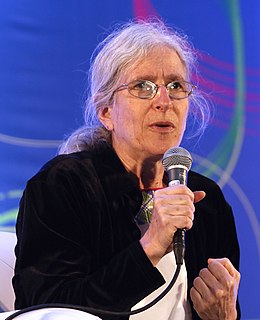A Quote by Henri Frederic Amiel
I do not deny the rights of democracy, but I have no illusions as to the uses that will be made of those rights so long as wisdom is rare and pride abundant
Related Quotes
At the end of the day, these are issues that need to be discussed: femicides, among other things - immigrant rights, women's' rights, indigenous people's rights, animal rights, Mother Earth's rights. If we don't talk about these topics, then we have no place in democracy. It won't exist. Democracy isn't just voting; it's relegating your rights.
Democracy is not freedom. Democracy is two wolves and a lamb voting on what to eat for lunch. Freedom comes from the recognition of certain rights which may not be taken, not even by a 99% vote. Those rights are spelled out in the Bill of Rights and in our California Constitution. Voters and politicians alike would do well to take a look at the rights we each hold, which must never be chipped away by the whim of the majority.
Let's not use the term democracy as a play on words which is what people commonly do, using human rights as a pretext. Those people that really violate human rights [the West] violate human rights from all perspectives. Typically on the subject of human rights regarding the nations from the south and Cuba they say, "They are not democratic societies, they do not respect human rights, and they do not respect freedom of speech".
The Iron Throne is mine by rights. All those who deny that are my foes." "The whole of the realm denies it, brother," said Renley. "Old men deny it with their death rattle, and unborn children deny it in their mothers' wombs. They deny it in Dorne and they deny it on the Wall. No one wants you for their king. Sorry.
We’ve learned that it will take more than one generation to bring about change. The fight for civil rights has developed into a broader concern for human rights, and that encompasses a great many people and countries. Those of us who live in a democracy have a responsibility to be the voice for those whose voices are stilled.
There are degrees of incompatibility, and there are more factors relevant to upholding democracy and human rights than the operation of neoliberal markets. Perhaps this point can be initially made by reference to the decline of democracy and the erosion of human rights within the United States since the 9/11 attacks.
It’s notable that the countries that most pride themselves on their commitment to equality, human rights, and democracy (like the United States and the western European countries) are precisely those that, in the late twentieth century, invented a new status (‘illegal’) in order to deprive some of their residents of access to equality, human rights, and democracy.I am honored to lend my name to PICUM’s campaign to end the use of the term ‘illegal’ and to challenge the whole concept of illegality as a status.
What will solve our problems is a specific set of ideas built on bedrock principles that made America the greatest nation to begin with and applying those principles to the unique challenges of this new century. And those principles are not complicated. It begins with a notion that this nation was founded on a powerful spiritual principle, that our rights do not come from government. Our rights do not come from our laws. Our rights do not come from our leaders. Our rights come from God.
You don't know who the next group is that's unpopular. The Bill of Rights isn't for the prom queen. The bill of rights isn't for the high school quarterback. The Bill of Rights is for the least among us. The Bill of Rights is for minorities. The Bill of Rights is for those who have minority opinions.
There are those who argue that the concept of human rights is not applicable to all cultures. We in the National League for Democracy believe that human rights are of universal relevance. But even those who do not believe in human rights must certainly agree that the rule of law is most important. Without the rule of law there can be no peace.
My friends, to those who say that we are rushing this issue of civil rights, I say to them we are 172 years late. To those who say that this civil-rights program is an infringement on states’ rights, I say this: The time has arrived in America for the Democratic Party to get out of the shadow of states' rights and to walk forthrightly into the bright sunshine of human rights.









































